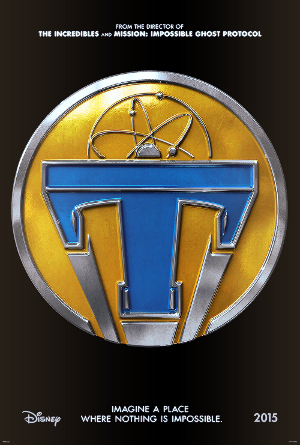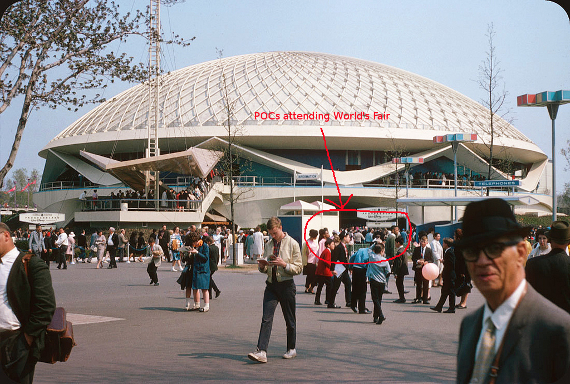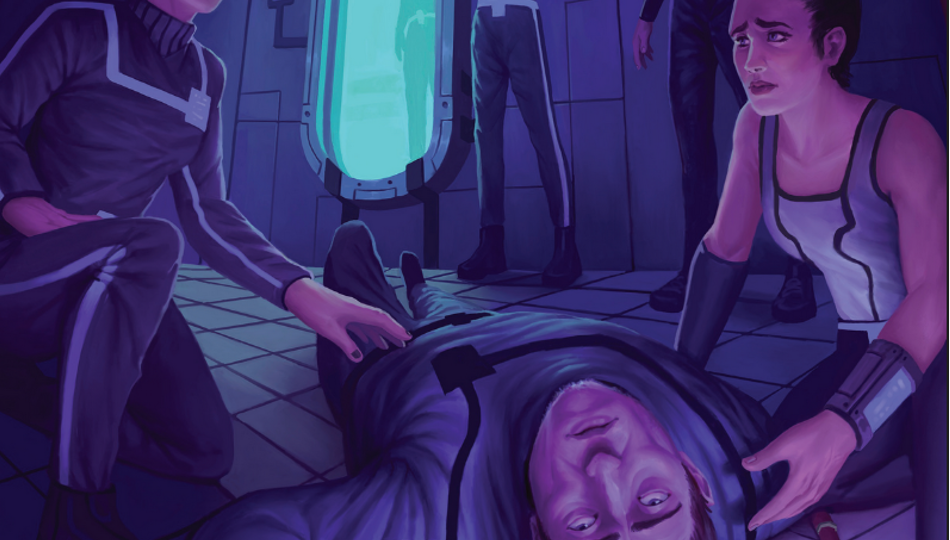 I’ve got to stop falling asleep in the middle of movies I intend to review.
I’ve got to stop falling asleep in the middle of movies I intend to review.
The last time that happened (Avengers: Age of Ultron), I wasn’t all that upset that I’d fallen asleep. The film was largely predictable, there were too many super heroes to keep track of, the “action” was done in that frenetic, short jumpcut, deliberately disorienting style that has come to largely substitute for plot in action films these days (I know, the kids like it…) and sleep relieved me of the burden of having to come up with other excuses as to why my opinion is largely at odds with the hundreds of millions of dollars the film has earned. (Not that I measure worthiness with dollar signs. That I’ll leave to our disappointed canine friends.)
To borrow from an SF action film I actually liked: Sleeping in the theater I probably looked like Hicks during the express elevator to hell dropship ride to the surface of LV-426. Head lolling, mouth-breathing, completely and utterly asleep, totally unmoved by the sturm und drang taking place all around him.
 Later in the film Hicks quotes Ripley’s suggested solution to their xenomorph problems: “All right. We take off. Nuke the site from orbit. It’s the only way to be sure..” No, Ultron is not deserving of being nuked from orbit (though the franchise does share a relentless and growing presence with the xenomorphs), but since I was going with the Hicks sleeping analogy, and since I like the exchange between Ripley, Hicks and Burke during that scene, to steal another quote :”You can bill me!” for the wasted wordage.
Later in the film Hicks quotes Ripley’s suggested solution to their xenomorph problems: “All right. We take off. Nuke the site from orbit. It’s the only way to be sure..” No, Ultron is not deserving of being nuked from orbit (though the franchise does share a relentless and growing presence with the xenomorphs), but since I was going with the Hicks sleeping analogy, and since I like the exchange between Ripley, Hicks and Burke during that scene, to steal another quote :”You can bill me!” for the wasted wordage.
Tomorrowland looked great in the trailers, didn’t it? But then so many disappointments do, don’t they?
So let me get the usual out of the way so I can address the meat of the matter.
[SPOILERS ACTUAL AND POTENTIAL FROM HERE ON OUT]
The acting was pretty good, with Robertson, Clooney and Laurie getting the most screen time; Britt Robertson as the female lead managed to convey a strong female personality, passed the Bechdel test and was a successful foil to Clooney’s jaded no-hoper. Hugh Laurie as President Nix of Tomorrowland played a one-off his House character. I’m positive that his leg getting crushed towards the end of the film was a deliberate reference to his TV show character.
Why oh why must cute, freckled 12 year old female robots always come with an upper-crust English-accent? Raffey Cassidy playing a girl-child robot minion of Tomorrowland struck me as a bit over-played…or just a tad bit off in nearly every scene she appeared in. Which may have been a deliberate reveal to the audience that the character wasn’t human. If that was the intent, it was too subtle, not quite pulled off and I remain unsure as to whether this was the fault of directing, acting or both.
The music attempted to soar where it was supposed to soar and attempted to foreshadow coming scene changes, but it was largely unremarkable. For direct comparisons, one could probably match scene for scene the jetpack flight (Tomorrowland future one) with the first flight scene from The Rocketeer. If you do, you’ll find that the music in Rocketeer soars and swells; that from Tomorrowland merely accompanies.
CGI, action sequences, humor, plot, acceptable, though the city of the future better not be built until Mapquest and Google.Maps get their act together. It’s a city supposedly built by creative, artistic geniuses. Apparently most of them come from the Salvidore Dali school of chaotic, nonsensical urban planning.
And herein lies the beginnings of my discomfort with this film. A city built by super-geniuses sticks a rocket port smack dab in the middle of downtown? Ok. Maybe one misguided creative super-genius might be so moved by their vision that they ignore common sense, practicality, safety considerations and break all kinds of other urban planning rules, but I have to believe that at least one other creative, artistic super-genius would, at some point, speak up and say “Hey, I know our technology is super-reliable and looks really cool, but maybe we might want to avoid a crash in the middle of downtown by placing the rocketport somewhere else. After all, since we have jetpacks and anti-gravity trains, getting there won’t be a problem.”
The problem here is that the film posits a special place, for special people, one that was created for the sole purpose of saving the world and realizing the kind of positive future we all used to dream about, and then populated that world with enough idiots to render the entire exercise moot.
The theme of the film is that optimism and hope are all we need to change the future into a positive one. Casey (Robertson) has so much hope that it alone is capable of altering the future. (Her father is a soon to be unemployed NASA engineer; Casey spends her nights sabotaging construction equipment being used to dismantle launch platforms at Kennedy Space Center.)
Specific (what some might even call preachy, or maybe even messagey) references are made to distopian futures, our obsession with apocalypse; later, Nix (Laurie) states that our culture is “embracing annihilation” (pretty good speech towards the end there btw). It’s almost as if the film’s theme was lifted from a panel at a science fiction convention: what if we all stopped writing negative stuff and started writing positive stuff? Could we make the world a better place?
We’re given hints of this contradictory view early on; Robertson’s character has received a pin that allows her to travel, briefly, to Tomorrowland, but it stops working. She locates a store in Texas that advertises a similar pin and she travels there to get some answers. In the store she’s met by the proprietor who introduces himself as Hugo Gernsback.
Anyone around here can tell you that Hugo Gernsback was the “father of magazine science fiction” and the original publisher and editor of Amazing Stories. What not everyone may be familiar with is that Hugo’s vision of science fiction (the first definition of the genre is provided by Gernsback in the opening editorial of Amazing Stories) is that of a force for inspiring people to build a positive future. His (generally regarded as awful) novel Ralph 124C41+ is, if nothing else, a travelogue of all of the fantastic and wonderful things science can do for us, if only people try.
But Tomorrowland turns Hugo into an evil robot trying to prevent anyone else from ever getting to Tomorrowland. (Read, maintaining the dystopic status quo).
I find it difficult to understand how the film’s authors could get the general theme correct – the one they borrowed from that convention panel – and yet fail to understand its origins, get the history of its players correct and muddled up the entire concept in the telling.
One other example of what I believe to be poorly executed messaging: the beginning of the film takes place at the 1964 World’s Fair in New York (I was there and much of what was portrayed seems to be largely accurate if failing memory is to be trusted). For some reason during those scenes I was prompted to take a look at the types and kinds of people who were on screen. I saw a handful of Asian-looking people, an Indian family (quite dark-skinned), but I do not recall seeing a single person of color.
I certainly may have missed one or two during the earlier part of this sequence, but once I became aware of what might be going on, I was really paying attention. I’d say that for at least 90% of the World’s Fair sequences, not a single non-white person appeared on screen – not in the foreground and not in the background.
I kept this in mind throughout the remainder of the film: I was trying to remember if I’d seen any POCs when I was actually at the World’s Fair (can’t remember, I was a bit young at the time). When I got home, I did a search for pictures to confirm my suspicion that at least some POCs had attended. Here’s the evidence:

I could have put up a few more pictures, all of which include a few people of color amid a sea of white. Not surprising considering the times. Putting international visitors aside, in 1964 it was far more likely that whites had the time and the economic wherewithall to make the trip, less likely that black Americans could. (It’s also far less likely that pictures from back then would give us a clear representation of Hispanics among the crowds, attending or not.)
For a film that was all about creating positive futures and one seemingly rooted in fan-culture lore, I found this to be a bit distressing. But then, I hadn’t had a chance to wait for the end of the film at that point either.
Long story shortened: Casey triumphs. Tomorrowland is freed from negativity, NIx is Nixed (will the next Disney villain be named “Badguy”?) and it once again churns out pre-pubescent robots to send to our world to recruit the geniuses and dreamers to Tomorrowland so that it can fulfill its original promise of bringing us all a bright, happy and optimistic future.
The robots being tasked with this job are very pointedly a strong mixture of widely varying racial and cultural types. (Yes, I know, appearances can be deceiving, that’s not the point here.)
It’s as if the message was: our world white washes humanity and history. In Tomorrowland/the promised wonderful future, all of that has been eliminated – and it is only because the white washing has been eliminated that the future can now realize its full potential.
Two themes drawn straight from convention panels, delivered up there with intended blockbuster delivery. Wow.
First – glad someone in Hollywood is paying attention. These two themes – that we’ve got to collectively return to thinking of the future with hope and optimism and that we’ve got to make a real place at the table for everyone – are at the root of virtually every internal discussion fandom has been having for years. Presented to a mass audience who
Second – is not going to get the message because it was either presented way too subtly for the average non-convention-going film viewer to recognize or just not presented strongly enough, almost as if the filmmakers were afraid to be too heavy-handed. (I suspect I’m above average when it comes to recognizing the lack of variety of racial types among extras in the background. I’d probably not have done so if the film hadn’t telegraphed its themes in non-subtle ways.)
Tomorrowland is not a bad film. One can say that it introduces important themes and then delivers them in a confused and often contradictory manner. One wishes that it had delivered the actual message of Tomorrowland – think positive, work positive, strive for lofty ideals, try to make the world a better place, keep pushing and have fun – instead of a confused jetpack ride that briefly visited the future and then came in for a wet landing in a pond.
Regardless. If I find one of those pins, I’m going. See? Optimism!











Recent Comments